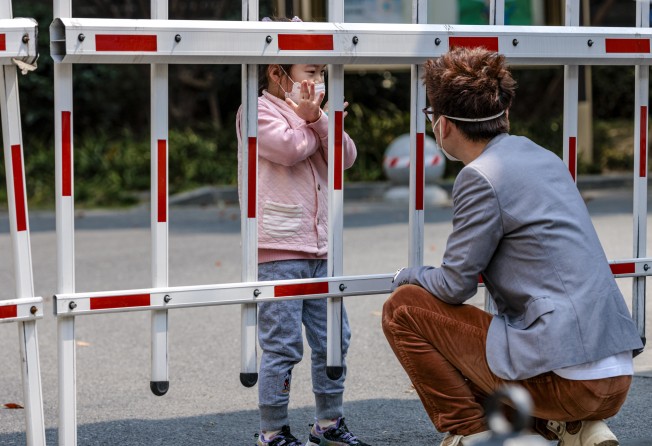China’s Omicron surge: what’s stopping Beijing from reaching for mRNA vaccines?
- Readers discuss the inexplicably slow process in China’s development of mRNA vaccines amid its latest outbreak and the trade-offs between freedom and national security

Feel strongly about these letters, or any other aspects of the news? Share your views by emailing us your Letter to the Editor at [email protected] or filling in this Google form. Submissions should not exceed 400 words, and must include your full name and address, plus a phone number for verification.
As China once again imposes widespread lockdowns (“China’s zero-Covid policy leaves poorer regions with little choice but ‘rigid and crude’ lockdowns”, March 18), one obvious lacuna demands an explanation. Where are the vaccines?
A programme of mandatory vaccination with three or four doses of a modern mRNA vaccine would obviously improve the situation. First, transmission would be substantially suppressed, making any “dynamic zero” strategy far more tractable in the face of Omicron. Second, the overwhelming of hospitals would suddenly become inconceivable, and, third, a “living with Covid” strategy would therefore become much more feasible.
This is obvious from first principles, randomised studies, observational studies and even simple comparisons with, say, Singapore.
The stakes could not be higher. Continued lockdowns will make meeting the economic growth target impossible and do long-term economic damage. Although war in Ukraine has temporarily delayed the United States’ pivot to Asia, the Americans are still coming. And if the Bharatiya Janata Party decides to focus on making money instead of targeting Muslims, India will be a serious rival.
There would certainly be difficulties, but none would be insurmountable. First, using mRNA vaccines might be a loss in propaganda terms, but propaganda is much less important than the concerns above.
Although there have been some setbacks in developing a domestic mRNA vaccine, China’s efforts so far have been fairly limited, hence the comparative paucity of published studies and randomised trials in badly affected areas. If the vast resources of the Chinese state were properly mobilised, it would be quite simple to produce a Chinese mRNA vaccine with slightly better performance – tailoring to Delta or Omicron would easily provide enough justification for state media to trumpet a success over the West.
Second, such a programme would be logistically difficult. Yet China vaccinated over 10 million and sometimes 20 million people a day for weeks; it hardly seems credible that the world’s second superpower should be unable to match the likes of Britain.
Third, perhaps the leadership is irrationally worried about the side effects of vaccines. But given that there is still a fair level of scientific expertise even at the level of the Central Committee of the Communist Party, that prospect too is far-fetched.
Fourth, mandatory vaccination might be unpopular – perhaps the party is even worried about civil liberties. Even so, a simple prick of a needle is preferable to any prolonging of lockdowns in every respect.
That such an obvious strategy has not been implemented should worry neoconservative hawks and well-wishers of the party alike. For all its flaws, the party leadership has historically behaved fairly rationally with respect to its own objectives. If that assumption is now unjustified, the implications – for cross-strait relations, Ukraine or geopolitical conflict generally – are almost too horrifying to contemplate.
J.P. Loo, Oxford, UK
Freedom is the price of pandemic control
I refer to the article “Mainland frees up hospital beds by scrapping admission of mild cases” (March 17). Regardless of the Covid-19 resurgence there, Chinese authorities seem to have handled the pandemic in their nation quite effectively overall.
Watching the little amount of news feed allowed to leave the mainland in the early days of the coronavirus outbreak, I was somewhat amused by TV images of some citizens being literally dragged back into their residences to contain viral transmission.
As the months passed and Covid-19 became a global pandemic, I couldn’t help but notice how China’s strict handling of its own outbreak, while allowing few rights and freedoms to its people, likely enabled a relatively short duration of its initial crisis.
Perhaps weaker national security can come with greater democratic freedoms, and vice versa. While I wouldn’t exchange my freedom for such national security, it is still foolish to pretend a national security sacrifice isn’t being made in exchange.
Frank Sterle Jnr, British Columbia, Canada